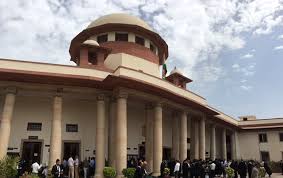In other words, Defendant Nos. 4 and 5 claim that the Suit Property is divided and enjoyed as per the last Will of Late Sheila Kapila. The Plaintiffs deny the existence of the Will said to have been executed by their grandmother. The Plaintiffs, Defendant Nos. 1, 2, and 3 are together in their pleas on the presence of the Will alleged to have been executed by Sheila Kapila. Therefore, the Plaintiffs, Defendant Nos. 1, 2, and 3, claim intestate succession to the Suit Property. (Para 5.2)
The Plaintiffs deny the copy/photograph of the Will of Late Sheila Kapila, communicated by the Advocate of Defendant No. 4. The alleged original Will of Sheila Kapila is not furnished to the Plaintiffs. In this background, while the Plaintiffs deny the existence of the Will (Para 5.3)
In essence, it is captured that the Plaintiffs and Defendant Nos. 1 to 3 claim intestate succession to the Suit Property, and Defendant Nos. 4 and 5 press on the existence of the Will dated 18.11.1999, and hence, claim testamentary succession to the Suit Property. The parties, through an independent application, moved for admission/ denial of documents on which the respective pleas are relied. We will excerpt these exchanges between the parties at the appropriate stage of our consideration. (Para 13)
The Learned Single Judge in terms of discretionary Jurisdiction under Order XII, Rule 6, read with Order XV, Rule 1 of the CPC, passed a decree without conducting a trial. While passing the decree on the alleged admission, it cannot be said that the objection of Defendant Nos. 4 and 5 was ignored. In the Judgment dated 10.05.2022, it is recorded that Defendant Nos. 4 and 5 through e-mail, conveyed to the Plaintiffs that the original Will of Sheila Kapila is with the mother of Defendant Nos. 4 and 5. (Para 16)
We do not approve of the conclusion of the Learned Single Judge, to the effect that the above stated contradictory statements of Defendant Nos. 4 and 5 on the possession of the Will create a doubt on the existence of the alleged Will. It is further noted that the original Will has not been produced before the Court. It is also noted that the Plaintiffs, and Defendant Nos. 1 and 2 deny the knowledge or existence of the said Will. Notwithstanding the above, viz. that there is an issue for consideration in the trial, the Judgment proceeds to consider the testamentary succession contained in the Will dated 18.11.1999, and a Judgment on admission is delivered. The Judgment refers to the paragraphs already excerpted and interpreted the clauses in the Will allowing to the children of Sheila Kapila, an absolute right. The Single Judgment placed reliance on the e-mail dated 29.07.2021 exchanged between the parties. A categorical finding in paragraph 29 of the Judgment is recorded which reads thus: (Para 17)
The kernel of the matter is what Sheila Kapila left behind after her demise; (a) the suit property, (b) children and grandchildren (Plaintiffs and Defendants). The succession to the Suit Property, whether intestate or testamentary would be the principal issue for adjudication. We record that the Impugned Judgment interpreted the clauses in the Will dated 18.11.1999 without the Will being brought on record. Secondly, the propounder has not proved the Will in the manner known to law, therefore, the Judgment on admission is an illegal exercise of discretionary jurisdiction under Order XII Rule 6 read with Order XV Rule 2 of the CPC. The case on hand, in our considered view, presents both triable issues in facts and law. For arriving at such a view, we also take note of the categorical reiteration of the Learned Senior Counsel appearing for the Plaintiffs and Defendant Nos. 1 and 2, from the pleadings, their clients are not accepting the existence of the Will dated 18.11.1999. Therefore, pronouncing a view on the operating clauses of document yet to satisfy the requirements of Section 63 of the Indian Succession Act read with Sections 58 and 68 of the Indian Evidence Act, is an illegal exercise of discretion. In our considered view in the case on hand, the admissions are not unequivocal and absolute to pave way for a Judgment on admission. (Para 37)
The probable issues that may arise for consideration are:
a) Whether the suit property is divided among the parties on testamentary succession or intestate succession?
b) Whether the Will propounded by Defendant Nos. 4 and 5 is valid, legal and binding on the parties?
c) Whether Defendant No. 3 is entitled to succeed to Dr. Rajendra Kapila’s share to the exclusion of Defendant Nos. 4 and 5?
d) Whether Dr. Rajendra Kapila could bequeath the share in the suit property in favour of Defendant No. 3 or not? (Para 37.1)
We request the Learned Single Judge on remand to dispose of O.S. No. 701 of 2021 as expeditiously as possible, preferably within four months from receipt of a copy of this Judgment. We make the above observation keeping in perspective the age of the contesting parties. (Para 40)
SUPREME COURT OF INDIA
2023 STPL(Web) 329 SC
[2023 INSC897]
Vikrant Kapila And Another Vs. Pankaja Panda And Others
Civil Appeal No. 5355 of 2023 (@ S.L.P.(C) No. 6793 of 2023)-Decided on 10-10-2023
https://stpllaw.in/wp-content/uploads/2023/10/2023-STPLWeb-329-SC.pdf







